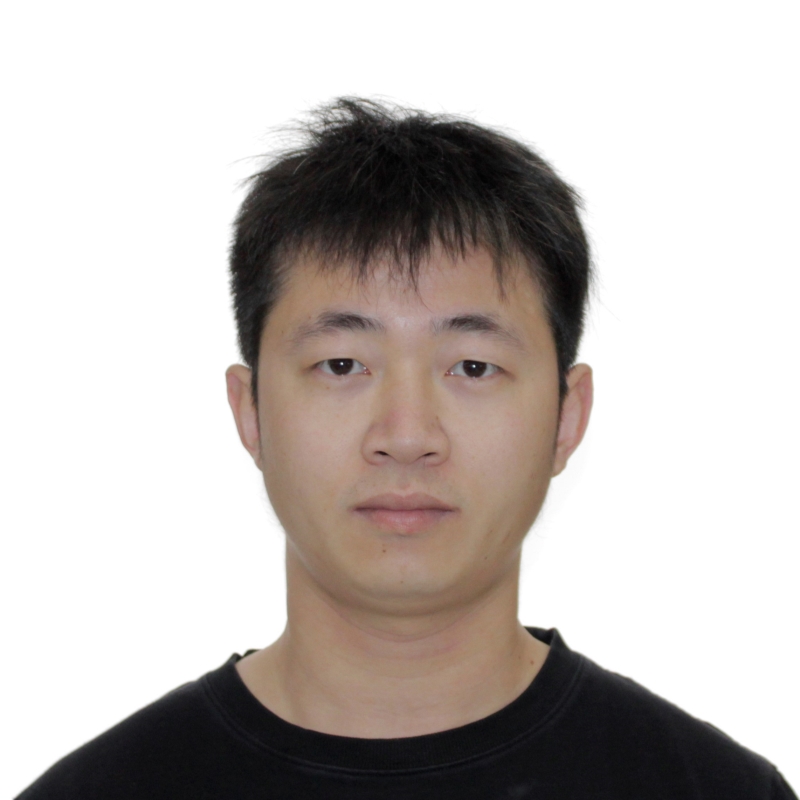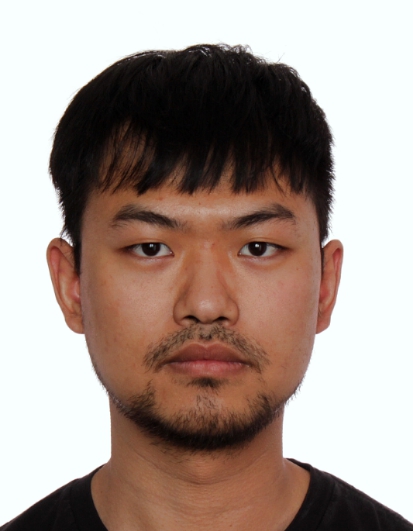
Dr Nadac Reales is Deputy Director of Innovator Services at University of Antofagasta, Chile. Additionally, she is running her own firm, the Rudanac Biotec Lab. Aim of her lab is to provide biotechnological solutions to real world problems.
Reales is among the academics who are looking for ways to employ biochemical reactions to remove metallic waste.
I have been following her research and contacted her for an interview to which she agreed even during her hectic hours of work. So, without much ado, please find Dr Nadac Reales herself answering questions on her scientific research and future applications:
When did you decide to become a Biotechnologist? Was there a specific event that triggered this decision?
I always knew I wanted to be a researcher, since I was a little girl, I was observant and detail-oriented of things that are there and exist but that many times people do not see, I was patient, I knew that things need a process, I always saw the diamond in every lump of coal that life presented to me.
Everyone since childhood has a restless spirit, who wants to have answers to all his questions, however these concerns remained constant in my life and every day I wanted to learn even more. One day reading a scientific article, I read that from some microorganisms, “bacteria”, it was possible to develop an antibiotic that saved lives of people suffering from infectious diseases and it was there where I wanted to know even more about bacteria and other microorganisms that could be of great use to our society.
You are currently running your own company, the Rudanac Biotec Lab. What is the lab’s research focus?
Rudanac biotes is an innovative Start Up dedicated to generate biotechnological solutions that provide a real solution to industrial and/or social needs in a sustainable way.
Currently the main research consists of an innovative biotechnological development, unique worldwide, which uses a set of microorganisms capable of 100% biodegradation of metal structures. These microorganisms were adapted to even more extreme conditions than usual, in order to develop the capacity to biodegrade metallic structures, specifically steel structures. This technology promises to be the only sustainable process to decontaminate ecosystems filled with non-recycled metal waste, providing a by-product of high commercial value in the copper extraction process.
Can you tell us more about your recent research? Specifically, the “Metal Eating Bacteria to Clean Up Metallic Waste”?
We will begin to carry out industrial tests to validate our technology; we currently have the land and the metal waste to carry out the tests. It should be noted that our process will allow us to biodesintegrate disposable and non-disposable metallic structures, with the purpose of transforming a metallic waste into new commercial products through a process that does not generate environmental contamination.
The resulting product can be marketed as a product that improves copper recovery in the mining industry or as a concentrated solution in iron, for the manufacture of new materials, whose main metallic element is iron.
In your research, you have used extremophiles, do you think there could be other microorganisms with versatile metabolisms and to be able to bio transform more than one type of metal?
I do not rule out the possibility of the existence of different types of microorganisms that could eat other types of metals, such is the case of the identification of bacteria that are able to feed on magnesium and use it as an energy source.
However, the research and innovation differ the type of metal used to generate its energy source, the type of response and the growth conditions it has, in Rudanac Biotec, we use a totally innovative methodology to adapt our bacteria to more extreme conditions, whose methodology is protected by trade secret. So far, no type of microorganism has been identified that could biodisintegrate metal waste in days.

Data collected by the Curiosity rover shows that Mars was once a warmer and wetter place than it is today. Do you think microorganisms could have existed on the surface of Mars?
In the 1980s, the first extremophiles were discovered, microbes that manage to develop in extreme conditions of salinity, temperature, pressure or dryness that, until then, were considered incompatible with life. Due to the above, it is possible to mention that there is a great variety of microorganisms on our planet, whose microorganisms are capable of surviving in very extreme conditions, these microorganisms can also thrive for many years in soils in a hostile environment.
Based on the characteristics of extremophile microorganisms, I do not rule out the presence of microorganisms on the surface of Mars. In addition, there is scientific evidence describing microscopic fossil life on Mars, present in a meteorite that fell in Antarctica. Other evidence has described ancient Mars as being quite habitable, at least for microscopic organisms.
A new study by Brown University scientists suggests that the Martian subsurface might be a good place to look for possible present-day microbial life on the planet. It’s an idea that has also been suggested in other studies, but the new research, published April 15, 2021, in the peer-reviewed journal Astrobiology, finds evidence that rocks beneath the planet’s surface could produce the same types of chemical energy that sustain microbial life on Earth.
From Rudanac Biotec, we leave the possibility open to those who wish to study our bacteria, to determine if they are capable of living in such extreme conditions as on Mars.
If we see the timeline of earth’s history, we find predominantly life on earth has been more microscopic than complex species. Do you think there could be a similar atmospheric realm in other planets too?
In the area of science, any hypothesis is not discarded until it can be verified. According to the above premise, everything is possible until proven otherwise.
I believe that it is possible to find an atmosphere on other planets, based on scientific studies conducted by astronomers, who detected a substance in the atmosphere that they cannot explain. It is a gas known as phosphate or phosphine (PH3), a molecule formed by a phosphorus atom and three hydrogen atoms.
There is scientific research, published in Nature Astronomy that details the finding of phosphine on Venus, as well as the various investigations that have been done to try to demonstrate that this molecule could have a natural and non-biological origin.
Professor Greaves’ team first identified phosphine on Venus using the James Clerk Maxwell telescope in Hawaii, and then confirmed its presence using the Atacama telescope in Chile.
What are your other interests besides biotechnology?
- Among my interests I love to help foundations that rescue and feed abandoned animals.
- I also like to practice sports, such as athletics, snowboarding and biking.
- Traveling to get to know new places and different cultures.
Someone comes up to you and says, “I wanna be just like you. I want to be a Biotechnology Research Scientist”. What advice would you give?
Since my research was disseminated, a large number of students have sent me messages and wish to work in my group of researchers, they have been inspired by my technological development and want to be scientists who develop solutions for our society. Messages that have moved me, and make me reflect and validate that we are doing things right, being an example for new generations of scientists, fills me with satisfaction and joy.
The path to become a researcher is not easy, first it is necessary to constantly acquire specialized knowledge, generate research, have economic resources, provide constant dedication, be persistent, have the ability to overcome frustration and the most important thing is to maintain the passion to achieve your ultimate goal.
Additionally, it is very important to surround yourself with trustworthy people who will support you in your dreams, establish a network of collaborators and maintain a balance between professional and personal life.
To every new scientist, I would say:
Your research can set a precedent, the one that will make it possible to design a better future.

Quick bits:
What is your favorite movie quote?
“Don´t ever let someone tell you, you can´t do something”. The Pursuit of Happyness, Will Smith
If you were a superhero what would your powers be?
Super power: Interpret and adapt natural systems
I believe that nature has the answers to all our problems, however, people are not able to identify them 100% and interpret those answers to be able to take them, adapt them and apply them to current needs. If we had the ability to interpret the functioning of every microscopic or larger being, the functioning of the ecosystem, we would have the answer to every need. Nature is wise, we must learn from each species and ecosystem that has been able to endure for years on our planet.
If you could get yourself anything, what would you get?
Scientific trip around the world
I am very passionate about science and the discovery of new ideas that need real solutions and I am convinced that every need has a solution that has not been discovered, because of the above, if I could give me something, it would be a trip around the world and / or another planet, in order to study natural environments to find answers and solutions to major questions of the world.
If you could trade lives with anyone for a day, who would it be and why?
I would like to change my life for one day with William Kamkwamba, an admirable person, a fighter despite all the inconveniences and needs he had to live, despite all adversity, he kept alive his desire to study and to apply what he learned in order to deliver a solution to his family and his community. I would like to have his life, in order to be able to learn from his life experience, how he kept his desire alive and how he fought against adversity and how he was able to get ahead.
What will your TED Talk be 10 years from now?
Title: The power of your mind, allows you to achieve your goals.
Summary: The power of transmitting life experiences, allows to deliver lessons to people who are living similar situations.
What books should I read in 2021?
Los trenes se van al purgatorio, by Hernán Rivera Letelier.
With his usual costumbrista touch and his background setting (the saltpeter pampa of northern Chile), Hernán Rivera Letelier immerses us in the lives of the passengers of the train that travels for four days through that inhospitable land where, in those years, the hard life of men and women whose existence revolved around the saltpeter offices, gives rise to a series of stories ” that are gradually unraveling during the novel.

Dr. Nadac, it has been a real pleasure! I can’t thank you enough. Your work is truly an inspiration. We look forward to visit you again and see more of your innovative research. Till then, we wish you all the very best for your future endeavor.



